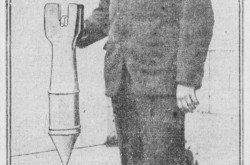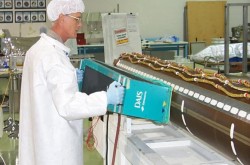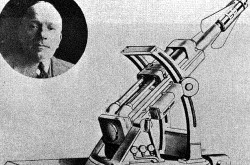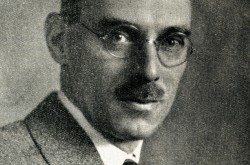Douglas Copp discovers a way to treat osteoporosis
This article was originally written and submitted as part of a Canada 150 Project, the Innovation Storybook, to crowdsource stories of Canadian innovation with partners across Canada. The content has since been migrated to Ingenium’s Channel, a digital hub featuring curated content related to science, technology and innovation.
Ilana Reimer
Algonquin College Journalism Program
The Manhattan Project, a top secret military plan to produce the first U.S. atomic bomb, was created in 1942. Only a year later, a young, highly-qualified Canadian biochemist was recruited to the team.
Douglas Harold Copp was still in his twenties, but he already held a medical doctor degree with honours from the University of Toronto, as well as a second doctorate in biochemistry. His father was a family physician, which was likely what inspired Copp to follow a similar career. But whatever the motivation, his impressive education and talent led Copp to leave his hometown of Toronto to assist with the Manhattan Project. Copp worked with a team at the University of California, Berkeley; his research was focused on the effects radiation can have on human bone marrow – illustrating how severe the damage can be.
When World War II ended Copp resumed teaching at UCB until he was invited to become Head of Physiology at the University of British Columbia’s new medical school. He spent the next 30 years studying hormones, and in 1961 he made his most famous discovery – calcitonin, which is a hormone that regulates the level of calcium in the blood. In its synthetic form, calcitonin can be used to treat osteoporosis, a progressive bone disease.
Dr. Douglas Copp received multiple awards for his innovative discoveries. He became an Officer of the Order of Canada, and in 1994 he was inducted into the Canadian Medical Hall of Fame. Two years after his death in 1998, he was inducted into the Canadian Science and Engineering Hall of Fame.
Transcript
Douglas Harold Copp, with a scholar's gift and top marks in medicine at the University of Toronto, was able to continue his education on a fellowship at the University of California. By 1943, he had completed another doctorate, this time in biochemistry. Almost immediately he was recruited for the top secret Manhattan Project, through which the allies completed development of the atomic bomb. Dr. Copp's research centred on the effects of radiation on human bone marrow.
Following the war, he returned to teach at Berkeley, but a few years later, Canada called him home. He was invited to the University of British Columbia, where he became the first Head of Physiology at the new medical school. In 1961, his research into hormones led to the discovery of calcitonin, a hormone which regulates the level of calcium in the blood and is used in treating patients with bone disease. Dr. Douglas Harold Copp passed away March 17, 1998.


















